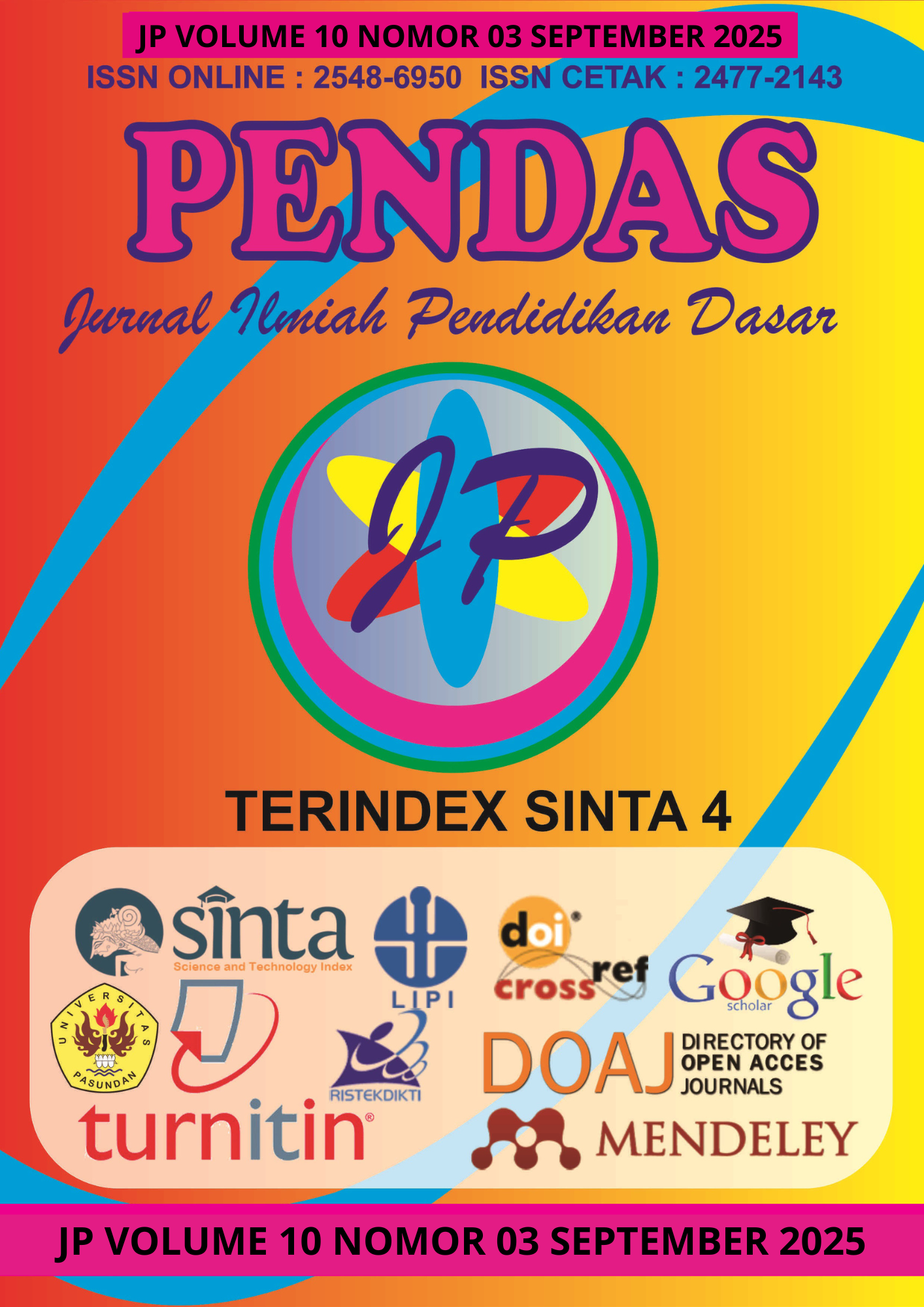PENGARUH MODEL OPEN ENDED DENGAN DUKUNGAN QUIZIZZ TERHADAP PENINGKATAN MOTIVASI DAN HASIL BELAJAR MATEMATIKA
DOI:
https://doi.org/10.23969/jp.v10i3.33049Keywords:
learning outcomes, learning motivation, mathematics learning, open ended, quizizzAbstract
This study aims to determine the effect of the Open Ended learning model assisted by Quizizz media on the motivation and learning outcomes of mathematics of grade VII junior high school students. The background of this study is the low motivation and learning outcomes of students due to conventional learning that does not involve students actively. The Open Ended model encourages students to think critically and creatively through questions with various possible answers, while Quizizz as an interactive quiz-based learning media creates a fun and competitive learning atmosphere. This study uses a quantitative approach with a one group pretest-posttest design and involves 13 grade VII students of SMP Muhammadiyah 4 Prambon. The instruments used are learning motivation questionnaires and pretest-posttest essay tests to measure learning outcomes. Data analysis is carried out descriptively and inferentially. The results of the study showed an increase in student motivation and learning outcomes after the implementation of the Open Ended model assisted by Quizizz. Thus, the combination of this model and media is effective in increasing enthusiasm, active participation, and understanding of students' mathematical concepts. This study recommends the use of this approach as an innovative strategy in junior high school mathematics learning.
Downloads
References
A. Anik, A. Achmad, dan D. Dina, Matematika Untuk SMP/MTs Kelas VII. Jakarta: Pusat Kurikulum dan Perbukuan, 2019.
A. Rusdi, “Model Pembelajaran Open Ended: Meningkatkan Kreativitas dan Daya Nalar Siswa,” Jurnal Inovasi Pendidikan, vol. 6, no. 1, pp. 28–36, 2018.
E. A. Prasetyo and A. Winarsih, “Efektivitas Media Quizizz dalam Meningkatkan Minat dan Hasil Belajar Siswa,” Jurnal Pendidikan dan Pembelajaran, vol. 5, no. 2, pp. 77–85, 2021.
H. Yuliani, “Penerapan Model Open Ended untuk Meningkatkan Kemampuan Berpikir Divergen,” Jurnal Pendidikan Matematika, vol. 4, no. 1, pp. 44–53, 2020.
J. M. Keller, “Development and Use of the ARCS Model of Motivational Design,” Journal of Instructional Development, vol. 10, no. 3, pp. 2–10, 1987.
N. Neni dan E. Eko, “Meningkatkan Hasil Belajar Matematika Siswa melalui Model Pembelajaran CTL,” Jurnal Pendidikan Matematika, vol. 7, no. 2, pp. 125–134, 2021.
N. Rahmawati, “Efektivitas Media Quizizz dalam Pembelajaran Matematika Berbasis Daring,” Jurnal Inovasi Pendidikan, vol. 8, no. 2, pp. 110–117, 2022.
M. Q. Patton, Qualitative Research and Evaluation Methods, 3rd ed. Thousand Oaks: Sage Publications, 2002.
T. W. Lestari and Y. Yulianti, “Pembelajaran Open Ended dalam Meningkatkan Kemampuan Berpikir Kreatif Matematis,” Jurnal Pendidikan Matematika, vol. 5, no. 1, pp. 45–52, 2021.
S. Azwar, Reliabilitas dan Validitas. Yogyakarta: Pustaka Pelajar, 2016.
S. Rahayu and B. Budiyono, “Pemanfaatan Quizizz dalam Pembelajaran Matematika,” Jurnal Teknologi Pendidikan, vol. 4, no. 2, pp. 112–120, 2020.
S. Santoso, Mengolah Data Statistik secara Profesional dengan SPSS 26. Jakarta: Elex Media Komputindo, 2020.
Downloads
Published
Issue
Section
License
Copyright (c) 2025 Pendas : Jurnal Ilmiah Pendidikan Dasar

This work is licensed under a Creative Commons Attribution 4.0 International License.














































